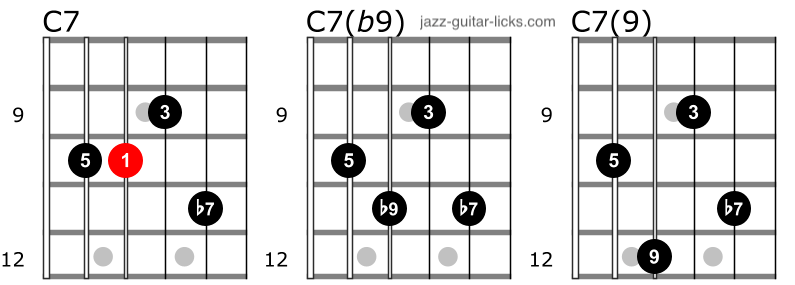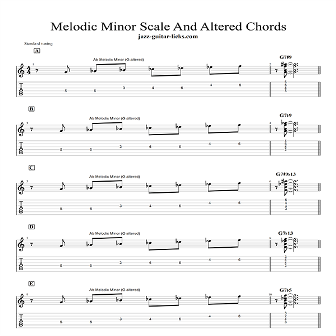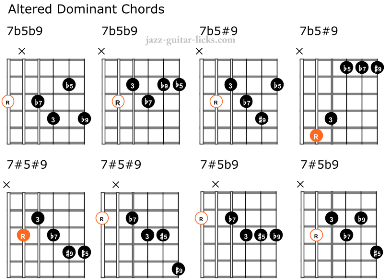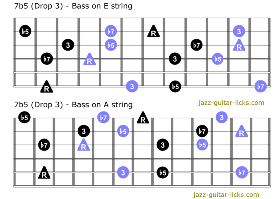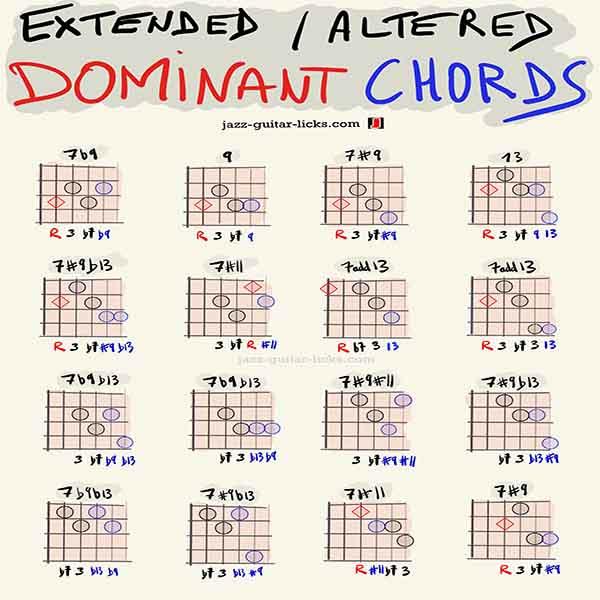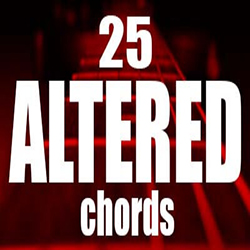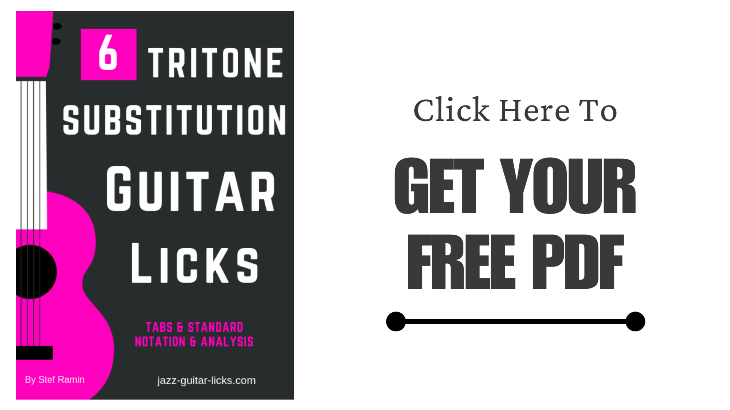Altered chords
-
6 Types Of Extended & Altered Dominant 7 Chord Voicings For Guitar
- By jazz-guitar-licks
- On 2024-02-03
- In Chords / Voicings
- 0 comments
In this short guitar lesson you will learn how to play 6 types of altered and extented dominant chords (7, 7b9, 9, 7b5, 7b5b9, 9b5) to expand your harmonic vocabulary.
-
Medodic Minor Scale And Altered Dominant Seventh Chords - Guitar Lesson With Free PDF and Short Video
- By jazz-guitar-licks
- On 2022-09-23
- In Jazz Guitar Lessons
- 0 comments
This guitar lesson provides 10 easy exercises for understanding the relationship between the Melodic Minor Scale and altered dominant seventh chords. This is a free course (or give what you want) with a printable PDF with tab/standard notation and a YouTube short video.
-
Chord Extensions - Music Theory Lesson
- By jazz-guitar-licks
- On 2022-06-07
- 0 comments
In this theory lesson we will see how to add natural and altered extensions to 7th chords. The aim being to bring new colors and so to embellish your chord progressions. This concept is a very important device for composing, chordal accompaniment and chord-melody arrangements.
-
Altered Chords - Guitar Lesson With Shapes and Theory
- By jazz-guitar-licks
- On 2021-10-26
- In Chords / Voicings
- 0 comments
Altered chords add color, tension, and sophistication to your playing, making them a must-know for jazz, fusion, and even blues and rock guitarists.
An altered chord contains one (or several) altered notes that don't belong to the diatonic scale.
These notes are the b5 (flat fifth), #5 (sharp fifth), b9 (flat ninth), #9 (sharp ninth).
In this guitar lesson we will see that they can be grouped into three disctinct families (major, minor and dominant) and also how to play them on guitar.
-
How to Use 7b5 Chords? Guitar Lesson With Shapes and Tabs
- By jazz-guitar-licks
- On 2021-10-12
- 0 comments
Altered chords are a very important part of jazz language, they are built by altering with a flat or a sharp one or more notes of a diatonic chord. They are very useful to bring a little bit of tension to any jazz chord progression.
This lesson focusses on dominant seventh flat fifth chords (7b5), that are dominant seventh chords with a lowered fifth, given the formula : root (R), third (3), flat fifth (b5) and minor seventh (b7).
-
Extended and Altered Dominant Guitar Chord Shapes - Free PDF Chart
- By jazz-guitar-licks
- On 2021-10-04
- In Guitar Cheat Sheets, Methods, eBooks, Posters
- 0 comments
This free guitar chord chart available as a PDF file contains the most important altered and extended dominant guitar chord shapes that any guitar player should know. It is totally free (or Pay What You Want) in return, don't hesitate to support this website.
-
25 Altered Dominant Guitar Chords
- By jazz-guitar-licks
- On 2018-03-04
- In Chords / Voicings
- 1 comments
Altered dominant chords are used to bring tension and an outside flavor to jazz chord progressions.
They generally resolve to an inside chord as the I or a substitute as iii or vi.
They have one or more notes lowered or raised by a half-step, in other words they contain one or more alterations.
These alterations are b9,#9, b5 (#11) and b13 (#5).
Altered Chords are generally used by jazz musicians, composers and arrangers as substitutions for diatonic chords for adding dissonance and spicing up the harmony.
